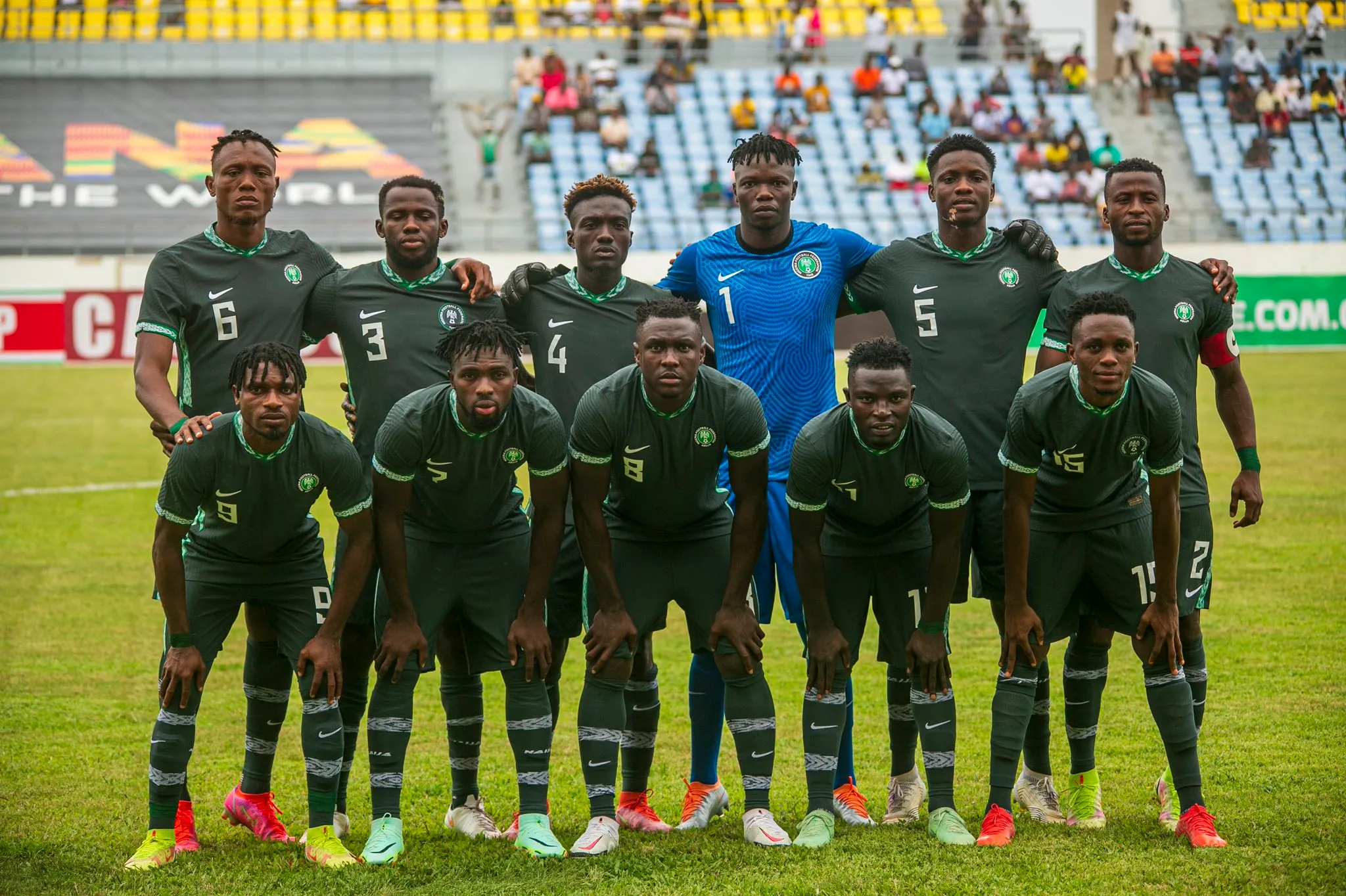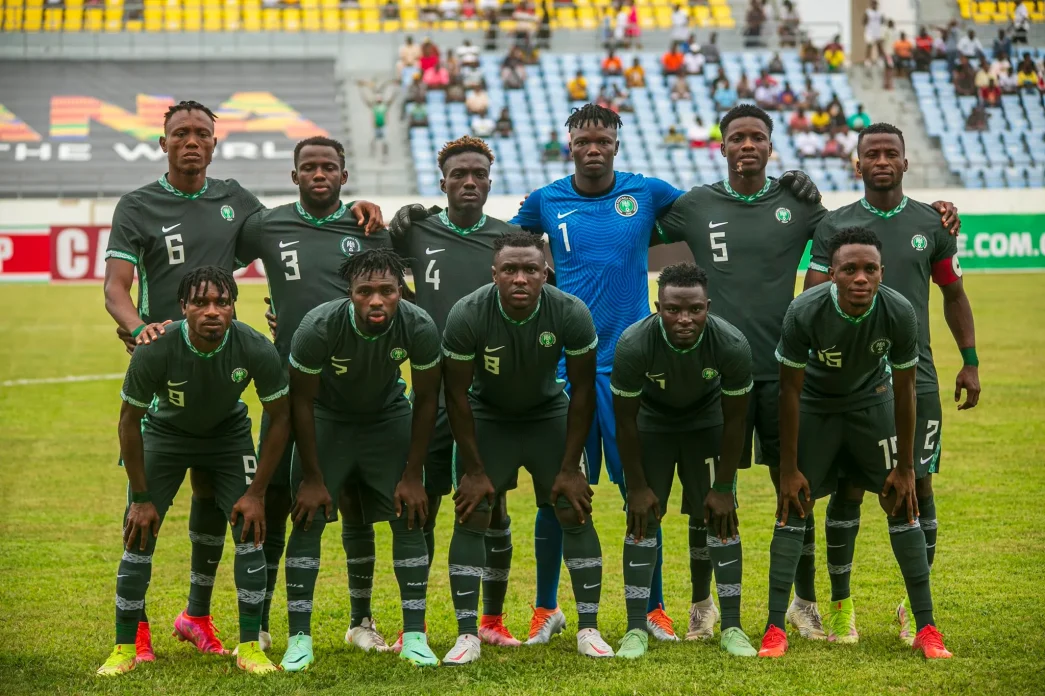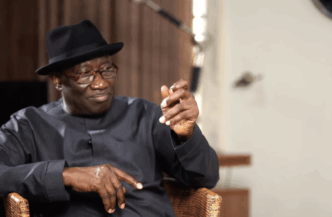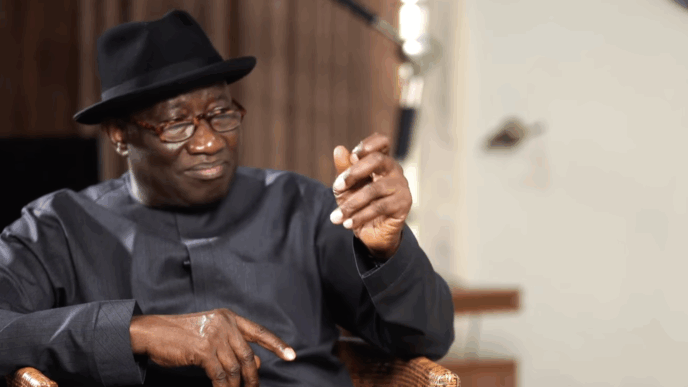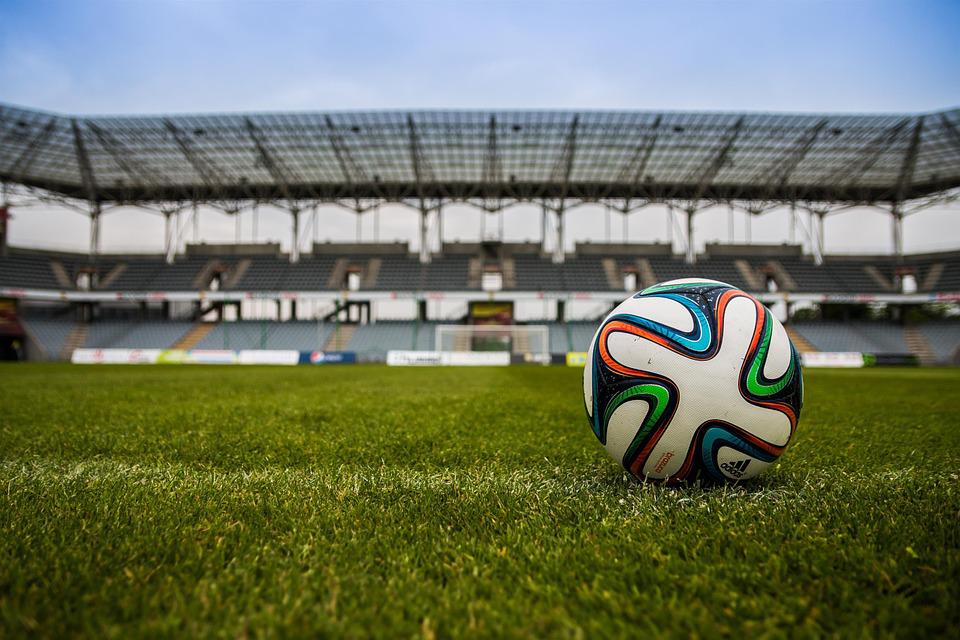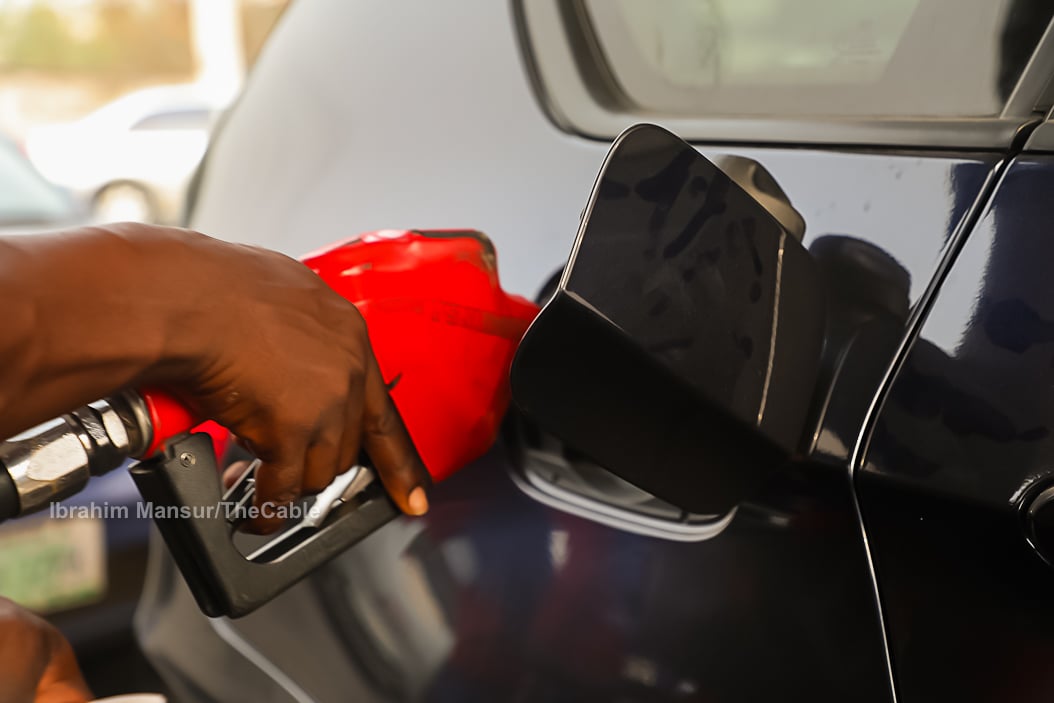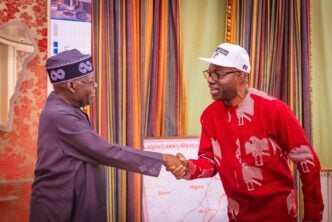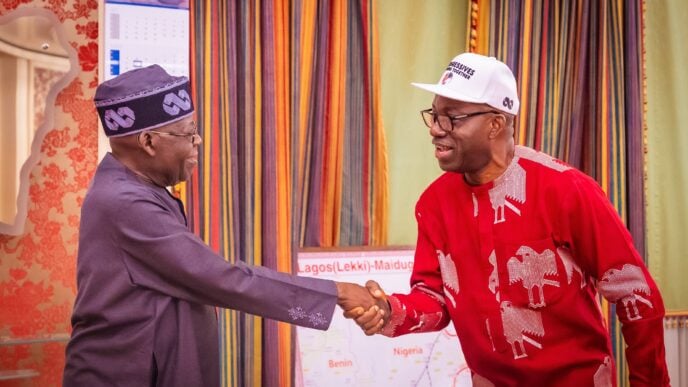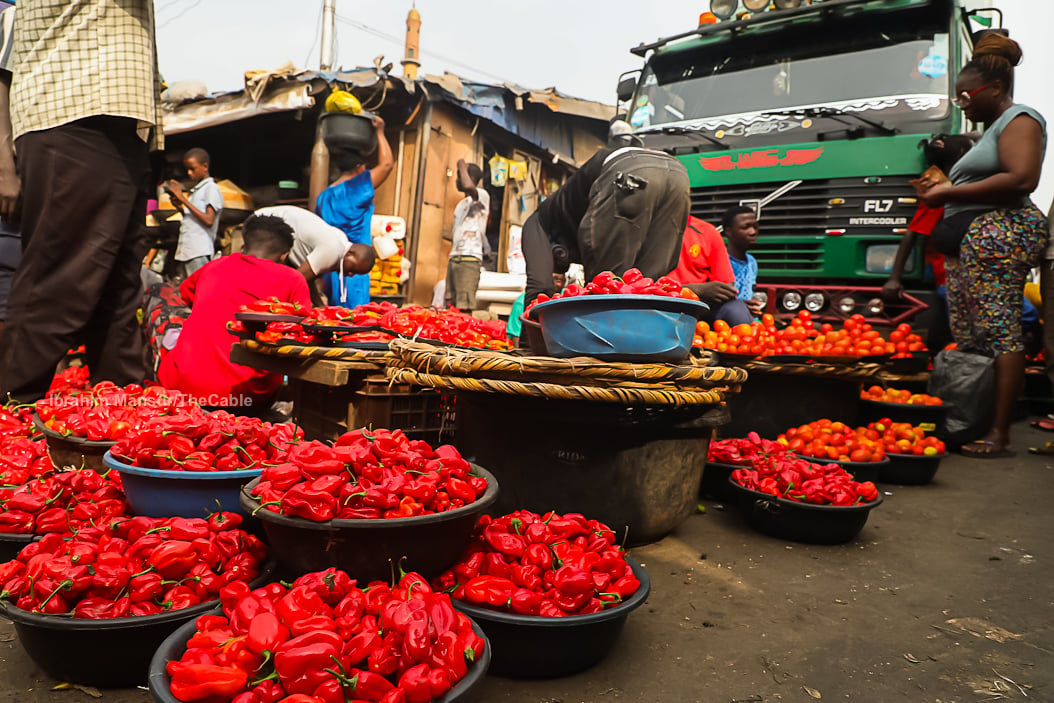The thrashing of the Super Eagles B team 4-0 by Sudan in the 2024 African Nations Championship (CHAN) on Tuesday is more than just a bad day at the office. It is a damning indictment of the quality of the country’s domestic league, the Nigerian Professional Football League (NPFL), and a stark reminder of the systemic rot plaguing Nigerian football. The CHAN tournament, exclusively for home-based players, was meant to showcase the strength of Africa’s domestic leagues, including Nigeria’s NPFL. Instead, it exposed the glaring weaknesses of the NPFL: poor player development, tactical naivety, technical deficiency, and a lack of competitive edge.
This embarrassment did not happen in isolation. Nigeria’s early exit, with zero points, zero goals scored, and five conceded, mirrors the steady decline of Nigerian clubs in continental competitions. Year after year, NPFL representatives crash out in the preliminary rounds of the CAF Champions League and the CAF Confederation Cup, often to teams from “lesser” footballing nations. The question is no longer whether Nigeria is still the “Giant of African Football,” but whether it ever will be again if nothing changes.
The Problems: Why Nigerian Football is Failing
1. Poor League Structure and Lack of Investment: The NPFL has long suffered from poor organization, inconsistent scheduling, and inadequate funding. Meanwhile, despite recent efforts by the GTI Assets Management & Trust Ltd. and NPFL Board to improve transparency and reduce crowd violence, the league remains far from being competitive by continental standards. Poor pitches and a lack of modern training facilities stifle player development.
Advertisement
2. Financial Instability: Clubs operate on shoestring budgets, leading to poor player welfare, unpaid wages, culminating in a constant talent drain to other African leagues and beyond. Those (clubs) financed by governments are always at the mercy of the interests of whoever is in power—whether the person is a football enthusiast or not determines the level of support the team gets. Sometimes, they suffer gross neglect during electioneering, when the financiers are gunning for re-election. During that period, nothing (including funding for the football club) makes sense to them, except where and when they realise it would earn them cheap political points. Even where the funding is forthcoming, it is either mismanaged or subjected to outright embezzlement, with nobody ever held accountable.
3. Weak Governance and Administration: From inconsistent scheduling to questionable officiating, the NPFL suffers from chronic mismanagement, which drives away fans, sponsors, and investors. And the ultimate beneficiaries are leagues across Europe, where the calendar is much more stable and predictable.
4. Poor Talent Retention: the inability of clubs to keep top players long enough to build competitive squads, over a period of three to four years has left Nigerian teams toothless in CAF competitions on the continent. This, by implication, limits the pool of talents from which the national team handlers could select players for this type of competition. European teams’ academies are replete with Under-17 players of Nigerian descent. That is the stage where they’re supposed to begin a journey of gradual integration into the senior team of an NPFL club. Many talents like Chidiebere Nwakali and his younger brother Kelechi, who joined Manchester City and Arsenal, respectively, shortly after winning the FIFA Under-17 World Cups in 2013 and 2015, respectively, are painful examples. Today they’re nowhere near the national teams’ call-up or a first team of a major European club side. Yet, no Nigerian club is chasing them either.
Advertisement
5. Tactical and Technical Deficiencies: The CHAN Eagles’ performance against Sudan was a masterclass in how not to play football – disorganised defending, a non-existent midfield, and a toothless attack. Coach Eric Chelle’s tactical setup was exposed, but the bigger issue is that most NPFL coaches lack modern training methodologies. Unlike Sudan’s Kwesi Appiah, who implemented a structured, high-pressing system, Nigerian coaches often rely on outdated tactics. In a nutshell, poor selection, garnished with poor, or worse still, lack of coaching! The players were grossly under-coached; out-played; out-ran; out-thought; and consequently, out-scored. Little wonder, the Ghanaian handler of the Sudanese team had the luxury of taking a swipe at the coaching crew of the Nigerian team when he said, having watched their previous match against Senegal, he knew they could beat the Eagles, but never envisaged a win with a scoreline with such a wide margin. Not done, he went further to add salt to the injury, saying, it is not as though the Nigerian team is not endowed with good players; all they need is a bit of good coaching. You can’t have it (the swipe) more direct than that.
6. Player Development and Exposure: The gulf in quality between Nigerian home-based players and their Sudanese counterparts was evident. While Abdel Raouf Yagoub (Sudan’s standout performer) displayed composure and technique, Nigeria’s players looked lost. That is a result of the exposure they get, representing the likes of Al-Hilal and Al-Merreikh in CAF continental competitions. That is a luxury Nigerian players don’t have because of some problems highlighted here. On the eve of the 2010 World Cup in South Africa, I could remember the then Super Eagles’ handler, Lars Lagerbäck, in one of his interactions with the media , saying he had a lot of work to do with the team in a very short period of time if they were to make any meaningful impact at the mundial. According to the Swede, he had watched video clips of the Super Eagles over the preceding ten years, and he did not come across a single scene where a Super Eagles player chested the ball. That spoke volume of the dearth of technical (and tactical) spice in our games’ coaching menu. The NPFL does not provide enough high-level competition, and young talents are often rushed into the first team without proper grooming, and ultimately into foreign leagues where the team the player’s agents ( mostly their parents) could make real money in no time.
7. Continental failures reinforcing the decline:
Nigeria’s clubs have become whipping boys in CAF competitions (Champions League, and Confederation’s Cup). Enyimba, the last Nigerian team to win the CAF Champions League (2003, 2004), now struggles to progress beyond the group stages. Rivers United’s recent early exits highlight the widening gap between Nigerian clubs and their North/West African rivals. It was therefore not surprising, though saddening, to see that there was no Nigerian club at the newly expanded FIFA Club World Cup in the USA, where teams earned as much as a million dollars for merely participating.
Advertisement
8. Marketing and Branding Failures: With little media coverage and weak fan engagement, the league struggles to create a compelling product that can rival those of South Africa, Morocco, or Egypt in terms of revenue generation for reinvestment into the league for a better “talent retention” rate than the league currently has.
9. Poor Infrastructure: poorly grassed and substandard pitches, dilapidated stadia, and inadequate training facilities blunt players’ development and hinder the growth of tactical football, rooted in technique.
The Solutions: A Blueprint for Revival
1. Overhaul the NPFL with private sector participation: the league needs a “sustainable investment,” not just government handouts. Strategic partnerships with firms like the GTI Group should expand to include foreign expertise in scouting, analytics, and youth development. Clubs must adopt professional management models, ensuring funds are used for infrastructure and youth academies. We can also Head-hunt seasoned league administrators to come in for a proper running of the NPFL. An audacious bid could be launched to bring back, former Super Eagles defender, Michael Emenalo, who is currently working as the director of football of the Saudi Pro League. His wealth of experience from his time at Chelsea, and Monaco is what Nigeria should look at tapping into.
Advertisement
2. Governance Reform: Appoint competent, independent administrators, insulated from undue political interference. The league must be run like a modern private sector business, not a government department, bugged by administrative bottlenecks shrouded in a lack of transparency and accountability. A culture of transparency and accountability must be entrenched to ensure that funds are not misappropriated or diverted for private use.
3. Aggressive Marketing and Media Partnerships: Broadcast more games live, leverage digital platforms, and cultivate a league culture that makes fans proud to show up every weekend. This would magnetize sponsorship, through which more revenue to be shared among the teams will be generated.
Advertisement
4. Youth Development Structures: Mandate every club to operate functional academies that serve as feeder teams, with clear pathways from grassroots to a professional level. NPFL clubs must establish “reserve teams and academies” linked to schools, as proposed in the NPFL’s collaboration with agencies like the Hungarian outfit “V Agency Sports Management” (which focuses on integrating education and football technology). Players should have access to “dual career programs” , combining football with education to ensure long-term sustainability.
5. Domestic Talent Retention Incentives: deliberate creation of competitive salaries and incentives to keep top players in the league for longer. Let there be affirmative action for home-based players regarding call-up to Super Eagles team A. That is enough motivation for players to want to do well.
Advertisement
6. Mandate Coaching Education and Modern Tactics: The NFF must enforce “CAF-licensed coaching requirements” for all NPFL teams. Exchange programs with European academies and partnerships with an agency like V Agency Sports Management can bridge the knowledge gap.
7. Improve Continental Competitiveness: The NFF should create a “special fund” to support clubs in CAF competitions, covering logistics, pre-tournament camps, and video analysis. Learning from Morocco’s and Egypt’s models, Nigerian clubs must prioritize continental success as a measure of progress. A robust preseason tournament won’t be a bad idea to enhance the fitness level of the teams participating in continental competitions.
Advertisement
8. Hold Stakeholders Accountable: The NFF, NPFL, and sports commissions (national and state) or ministries, as the case may be, must set “measurable targets.” Failure to meet them should lead to leadership changes through taking a honourable exit. Fan engagement, as seen in the NPFL’s recent attendance boost, must be sustained through better marketing and matchday experiences.
9. Infrastructure Investment: A public–private partnership model should be adopted to renovate stadia, upgrade pitches, and build modern training centres. There is a template for this, from the time of the last Minister of Sports but one—Sunday Dare. His adopt-a-project model is something that can be built on.
In conclusion, there should be no more excuses. Sudan’s victory was not a happenstance—it was a result of tactical discipline and a meticulous player development plan rooted in proper envisioning and crafty implementation. Nigeria must stop resting on past glories and over-reliance on Europe-based-or-born players and confront its footballing decline head-on in the domestic league.
The CHAN disaster should be the catalyst for a “total football revolution.” If stakeholders act now, the NPFL can rise from its current state of mediocrity and restore Nigeria’s place among Africa’s elite. Otherwise, more humiliations await us on the continent and beyond.
The time to act is now.
Abubakar writes from Ilorin, Kwara State. He can be reached via 08051388285 or [email protected].
Views expressed by contributors are strictly personal and not of TheCable.

